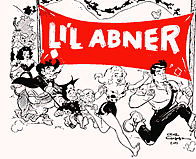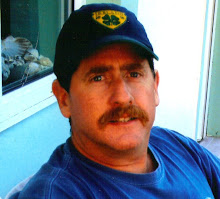
Proposal continues for...
Little Green Houses: Florida Grow Houses and the Rise of Home-Grown Organized Crime
Non-fiction/current events
Circa 300 pages with photos
by David A. Kearns
III
Sample Chapter
Chapter Two
Case Study:Main Street Pub
"Faulty reasoning that marijuana isn't a drug"
MELBOURNE, FLORIDA – It's called Main Street Pub and it's got one hell of a history behind it. The owners bought a two-story frame house on half an acre and converted it to a full-service, liquor bistro overlooking New Haven Avenue. They built a massive tiki-bar in back with an adjoining patio. The kitchen was the first in town to offer seared ahi tuna, done to perfection on a bed of chilled lettuce.
In the men’s room downstairs there was an old, framed print of a smirking Sean Connery as James Bond oozing style, class and machismo with a dash of the exotic. That was what Main Street Pub was all about.
The grow house reportedly had two, five-ton air handlers working twenty-four seven. As well as an elaborate system of bulwarks on the front door to thwart rippers and law enforcement. Walls had been knocked through, every single square-foot of living space dedicated to the hydroponic cultivation of cannabis sativa; sinsemilla, bud, herb, ganja, nugs, skank, chronic, krypto - whatever you want to call it.
You imagine the young plants, just over 1,000 of these innocent looking juveniles standing at attention under bright lights in the small, neatly-tiled room. The hum of the air handlers as these plants turn into dollars, which are then sluiced back into the business to pay for the start-up costs and renovations of Main Street Pub while providing income to the owners. The lights blasting from the cracks under the garage doors, the skunky, yet, sugary-sweet smell of the buds, sweating THC into the air as they thrived; these gave neighbors to the home the customary signals. Yet for nearly one year, no one tipped the police. No one said a word.
Twenty miles north the smell of tonic and lime joins piped-in music, after-sundown fools laughing, spilling drinks on each other, whistling to crowds of girls walking up and down New Haven Avenue. College kids, retirees, lovers, elderly couples, drunks, engineers, teachers, getting hammered beneath all the festoonery and flat-screen televisions; the cops giving the place the wink and the nod, hardly pouncing on woozy patrons as they drive away.
Hipster kids behind the bar in the back patio as the reggae played. They were your best friends in the world, it seemed. They loved you like kin with free shots of novelty booze every now and then. A smile, a joke, or a light up your smoke, a hell of a good time.
What the bar staff knew, precisely and when did they know it? There is no telling. People needed work and the place was happening. If they did know, they never peeped a word to the patrons.
You rarely ever saw the owners, Thomas Cross or Joe McAneney. Thomas Cross, 52, of Melbourne Beach, co-owner of the Main Street Pub had no police record prior to his initially successful foray into the drug trade.
He did what many of us imagine doing; he did what certainly many Caribbean rum runners and whiskey distillers in the woods of Tennessee and North Carolina did in the 1920s. He got rich and then invested the money into a profitable, legitimate business, and he surely planned on shedding the illegal one before anyone got wind of where all the money came from to start up.
Sure, perhaps you’d do the same thing, if you had the guts. Banks aren’t loaning these days. Economic times are tough. Small business owners pinched in the crunch are finding it increasingly difficult to stay afloat. Layoffs are rampant.
How many of us haven’t looked at a small space in the closet, garage, or even in tool shed on our property and thought about making a go of it?
Cross went further than mere talk or imagination. He actually did it. He took a purposeful, bold leap across the legal line. He risked his family’s future, their $300,000 Melbourne Beach home and mortgaged a small property in Grant to grow his weed, cops said.
Joining him was lifelong friend and business associate Joseph McAneney, 51, also of Melbourne Beach.
Everything went exactly according to plan, right up to the moment police smashed down the door of his grow house and found the crop.
In the end however, the pair of men could have done a lot worse when it came to sentencing.They were able to keep the family bar, which is now run under the directorship of their wives. They paid more than $600,000 in fines for their crime.
As part of a plea arrangement, the men were given two-year sentences each in federal penitentiary as well as fifty hours of community service, and three years probation.
The bar still is a prominent feature on New Haven Avenue today. Sean Connery’s image still receives confessions during rest-room breaks, and Main Street Pub still serves a mean, seared ahi tuna.
At sentencing, through his attorney, Thomas Cross intimated that like many of us he hadn't been convinced in the total, illegality of marijuana. This "faulty reasoning" his attorney said, prompted the decisions which led him eventually to jail.
Cross and McAneney may not, at the moment, enjoy their current predicament. But perhaps they were ahead of the curve.
Because with law enforcement agencies statewide, and nationwide, forced to reduce their staffs, it seems now, more than ever, this industry is growing despite stiffer penalties, despite widely publicized arrests of otherwise law-abiding citizens who get into the business of growing pot in small spaces.

 David A. Kearns is a graduate of Florida Institute of Technology in Melbourne Florida with a degree in geological oceanography. Mr. Kearns is a former journalist for Florida Today newspaper covering police beat news, city and county government, and the environment. He also served the United States Peace Corps as an advisor to small-scale farmers in rural Honduras, Central America. Mr. Kearns has taught science at Brevard County schools, chemistry and oceanography at Florida Air Academy of Melbourne Florida. Mr. Kearns is the author of Where Hell Freezes Over (Thomas Dunne Books 2005) the story of the crash and rescue of the crew of the US navy seaplane George 1 in Antarctica in 1946/47. Mr. Kearns is the son of one of the survivors of that crash
David A. Kearns is a graduate of Florida Institute of Technology in Melbourne Florida with a degree in geological oceanography. Mr. Kearns is a former journalist for Florida Today newspaper covering police beat news, city and county government, and the environment. He also served the United States Peace Corps as an advisor to small-scale farmers in rural Honduras, Central America. Mr. Kearns has taught science at Brevard County schools, chemistry and oceanography at Florida Air Academy of Melbourne Florida. Mr. Kearns is the author of Where Hell Freezes Over (Thomas Dunne Books 2005) the story of the crash and rescue of the crew of the US navy seaplane George 1 in Antarctica in 1946/47. Mr. Kearns is the son of one of the survivors of that crash






